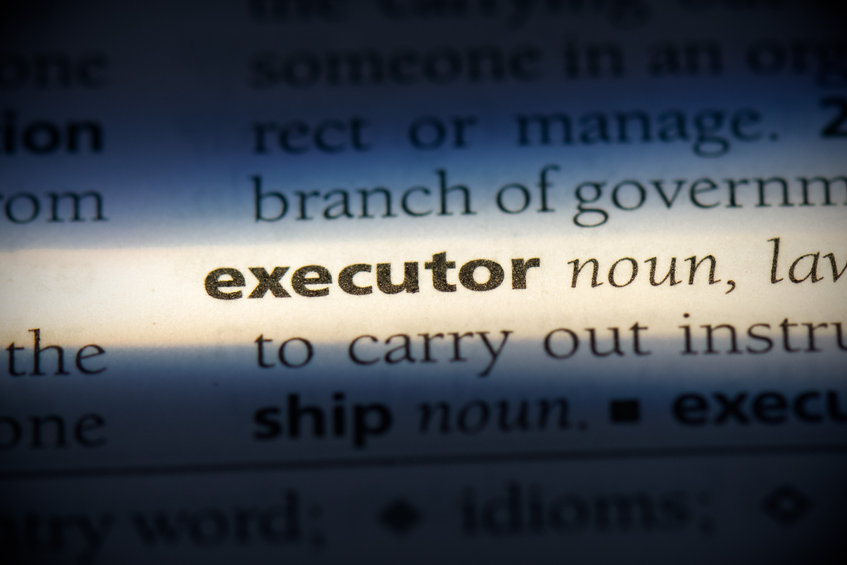
Executor 411
Just about everyone has heard the term “executor”.
Most people probably don’t really know what it really means…or the responsibilities it entails.
But if you ever have anything to do with a will…yours or someone else’s…it’s important to understand what an executor does. It’s especially important when you need to designate an executor for your will, or if someone asks you to be the executor of their will.
Here are some important things you need to know about what an executor does, how to choose one and what to do if you’re asked to be an executor.
What Does an Executor Do?
An executor is someone appointed by the court who is legally responsible for taking care of the deceased’s final financial obligations.
Usually they’re named in the will, but the court can pick a different person if the original executor declines the responsibility (or is dead themselves).
An executor’s duties can include the following:
- Apply for probate of the will
- Notify beneficiaries (a.k.a. “reading the will”)
- Dispose of property in the estate
- Maintain property in the estate (such as upkeep on a house) until the estate is settled
- Pay any outstanding bills and notify creditors
- Pay taxes for the estate and file a final tax return for the deceased person
- Make any necessary court appearances for the estate
Each state can define an executor’s duties differently. In Texas, the requirements can be found in the Texas Estates Code.
How to Choose an Executor for Your Estate
Obviously, choosing someone to be your executor is a major decision. This person will be responsible for making sure your final wishes are carried out.
Your spouse or a responsible adult child should be able to handle the duties involved with the help of professionals like an attorney, CPA or financial advisor. However, your executor doesn’t have to be a family member…anyone you trust (close friend, attorney, financial advisor) can be a good choice.
It’s important that you ask your potential executor first! And list one or more alternates in your will, in case your first choice declines or is unavailable. (Ask these people as well)
To make things go more smoothly for your future executor, make sure you keep important documents and records in a safe, accessible location. These should include:
- Your will, estate plan and burial plan
- Bank and brokerage statements
- List of online accounts (including usernames and passwords)
- Information about credit cards and other recurring payments
What If Someone Asks You to be Their Executor?
Being the executor of someone’s estate is an honor. It means the person trusts you to step into their shoes, carry out their last wishes and make sure their estate is properly settled.
But…it’s also a job, and a big responsibility. As executor, you are responsible for making sure the deceased’s last wishes are followed with due diligence through the probate process.
Before you say “yes”, ask a few questions first:
- Where will the will and other important documents (see above) be stored?
- Do they have a list of online accounts and passwords?
- How can you contact their attorney / accountant / financial planner if needed?
Remember…being someone’s executor can be a last act of love and kindness for the person who passed away. It can determine how he or she is remembered when they’re gone.
You should consult with an attorney when you need help choosing an executor for your estate (or drafting the rest of your will) or if you’ve been asked to be an executor.
Feel free to contact me either through my website (https://mmconnollylaw), email (mmconnollylaw@gmail.com), or via my Facebook or LinkedIn pages.
